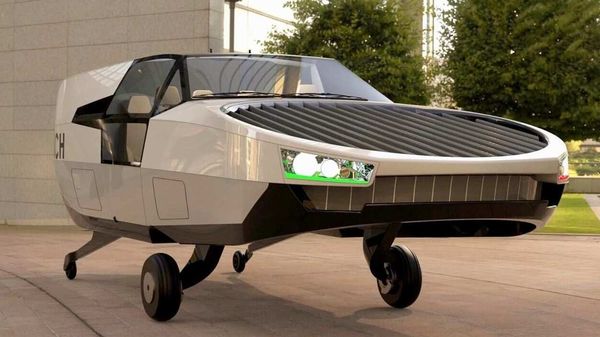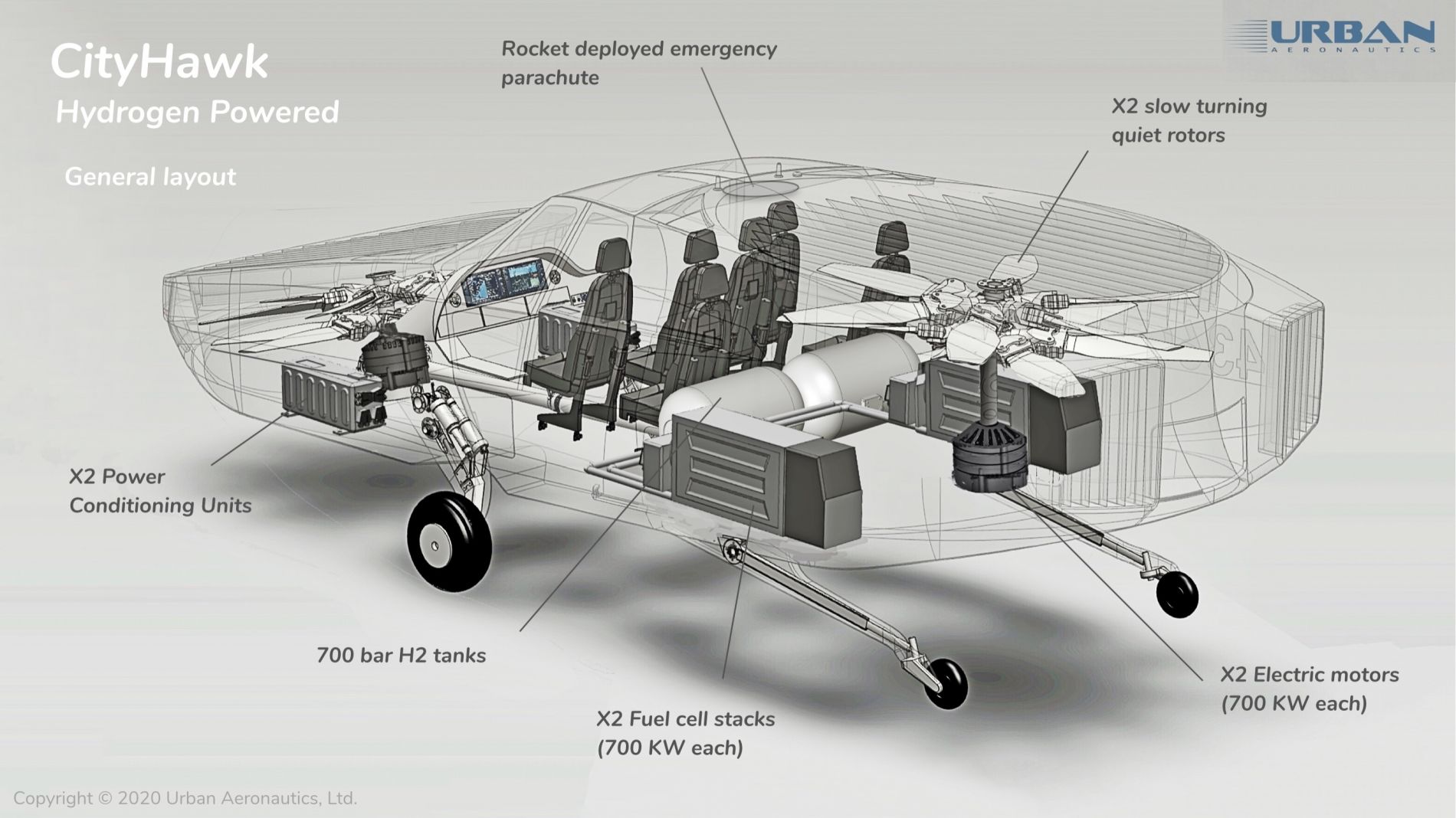This 'Made in Israel' flying car aims to be Uber in the sky
Creative Arts Solution
FOUNDATION
a non-governmental foundation
This 'Made in Israel' flying car aims to be Uber in the sky

This 'Made in Israel' flying car aims to be Uber in the sky
2 min read . Updated: 08 Jul 2020, 09:14 AM ISTHT Auto Desk- The six-seater CityHawk is wingless and the size of a large SUV so that it can land on a sidewalk near homes and offices.
Once a part of comic book and movie folklore, flying cars are now not merely fictional characters. Though they have not really taken off in the real world, some companies are not giving up on the hope yet.
Israel-based Urban Aeronautics company is developing its CityHawk flying cars, powered by hydrogen fuel cells. The company aims to deploy these flying cars like Uber in the sky. The company has recently signed an agreement with HyPoint to advance the incorporation of hydrogen fuel cell power in its CityHawk eVTOL design.
CityHawk is a six-seater vehicle, with a uniquely compact footprint and no external wings or rotors. Its small footprint/high payload configuration is optimised for urban transportation and emergency response. The rotorless, wingless design offers enhanced safety and unrestricted mobility with unique “fly anywhere, land anywhere" door-to-door transportation capability. It features Urban Aeronautics’ groundbreaking internal rotor Fancraft technology, which utilises powerful ducted fans in combination with innovative aerodynamic technologies that result in superior control, stability, speed, safety, noise reduction and sustainability.
“We look forward to collaborating with HyPoint on the integration of the next generation of hydrogen fuel cell systems for eVTOL transportation and the urban air mobility market," said Rafi Yoeli, CEO of Urban Aeronautics. “As a high-power, 100 percent environmentally friendly fuel, hydrogen is key to the future of eVTOL aircraft."
(Also read: Flying taxis are real but not quite ready for take-off yet)
Urban Aeronautics has spent the last decade and a half perfecting the internal propeller system called Fancraft that is safer for pedestrians and takes up much less space. The flying car is the size of a large SUV so that it can land on a sidewalk near homes and offices. Alternatively, up to four CityHawks could land on the roof of an office building compared with just a single traditionally sized helicopter.

HyPoint’s hydrogen fuel cell design features zero carbon emissions and superior energy performance through higher specific power and practical output power capacity. The company’s new turbo-air cooled fuel cells increase the lifespan of hydrogen powertrains from 5,000 to 20,000 hours and only take a few minutes to refuel, representing a significant improvement over existing systems.
“We were very impressed with the next generation of flying vehicles being developed by Urban Aeronautics, as well as its commitment to hydrogen power, and we look forward to working with them on this exciting project," said Alex Ivanenko, Founder and CEO of HyPoint.
Reference :
- Get link
- X
- Other Apps


Comments
Post a Comment